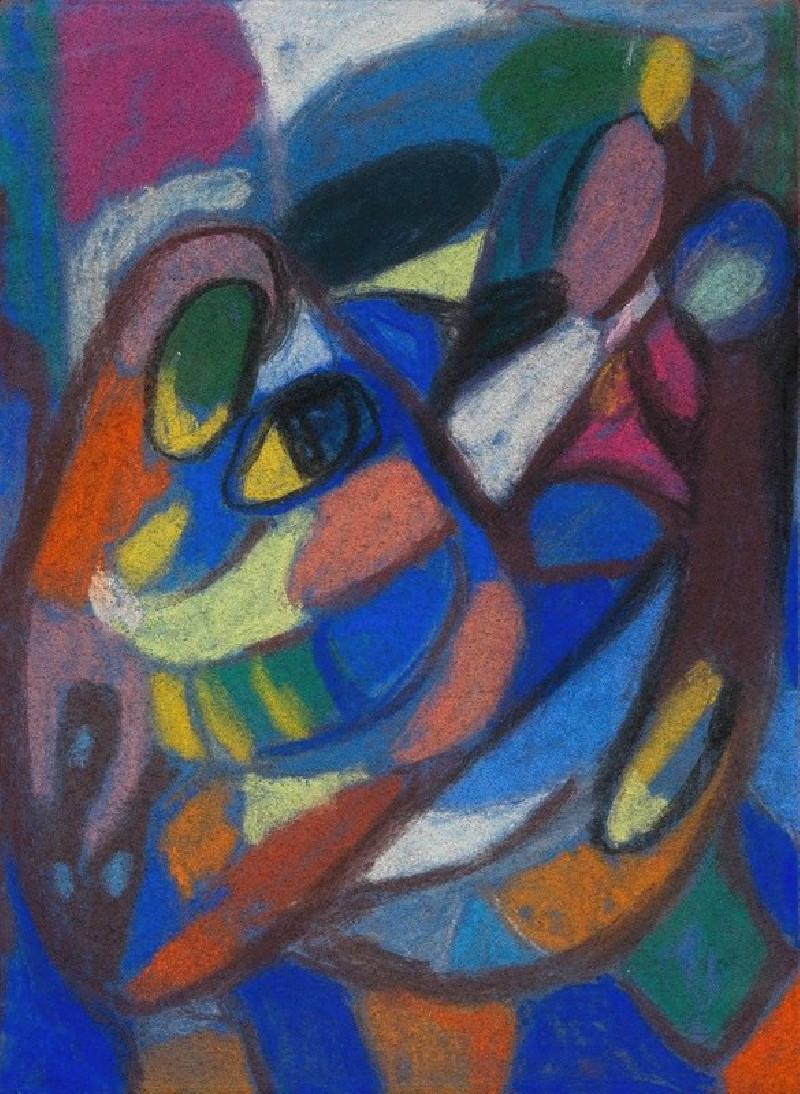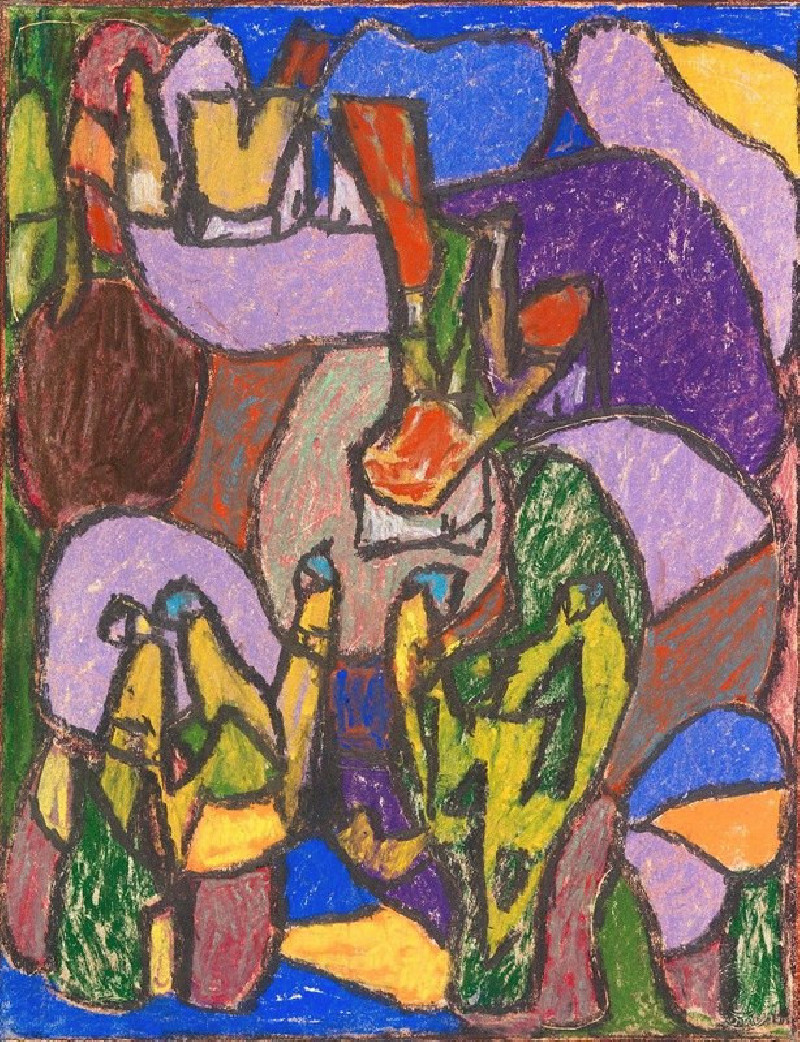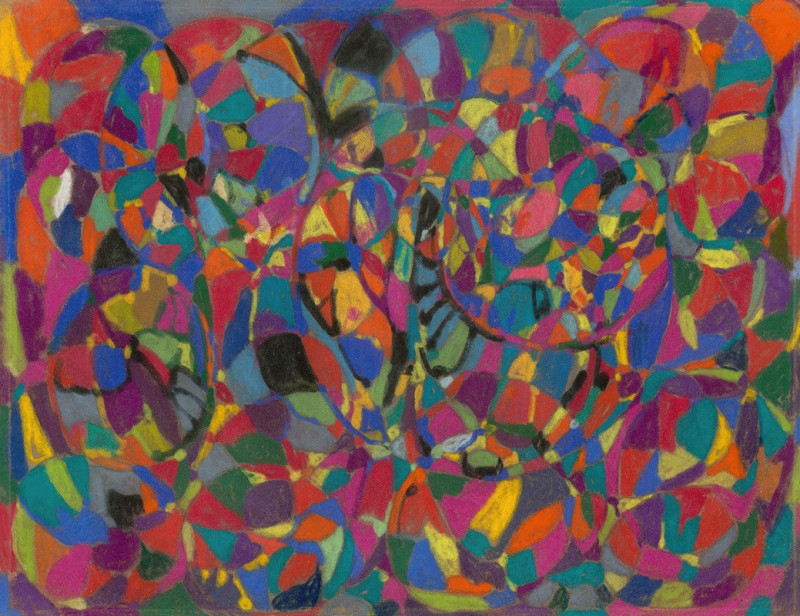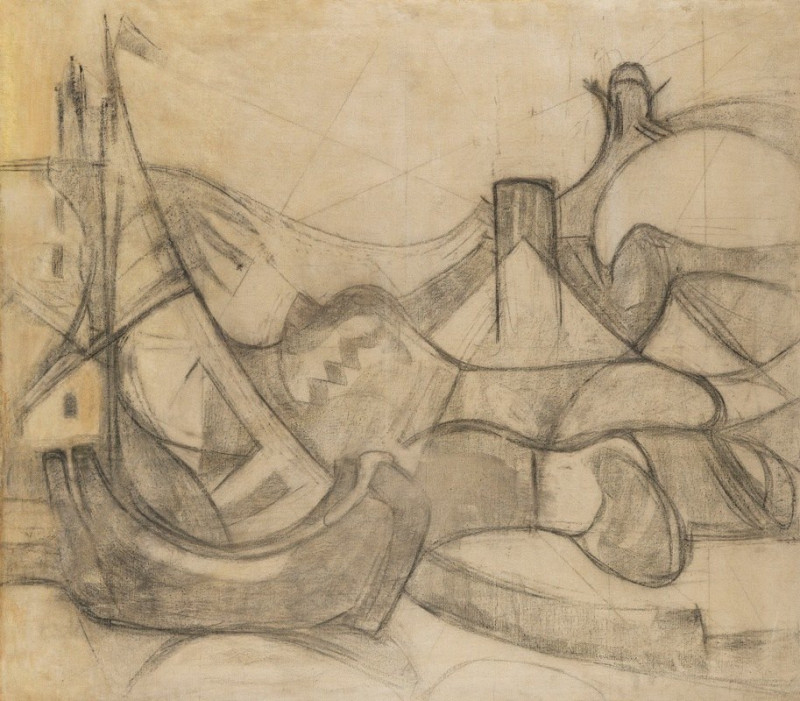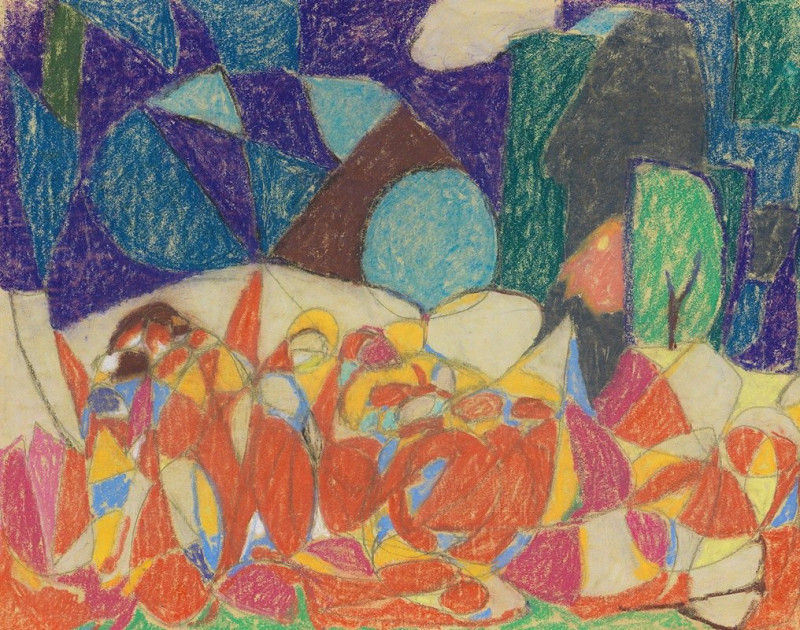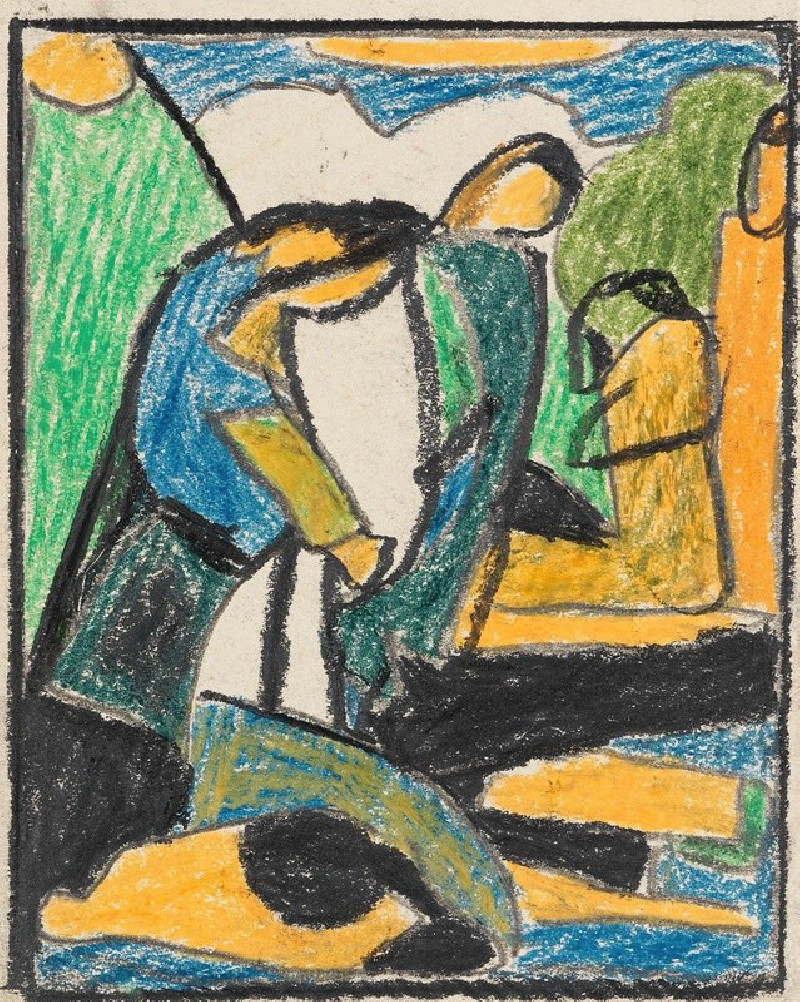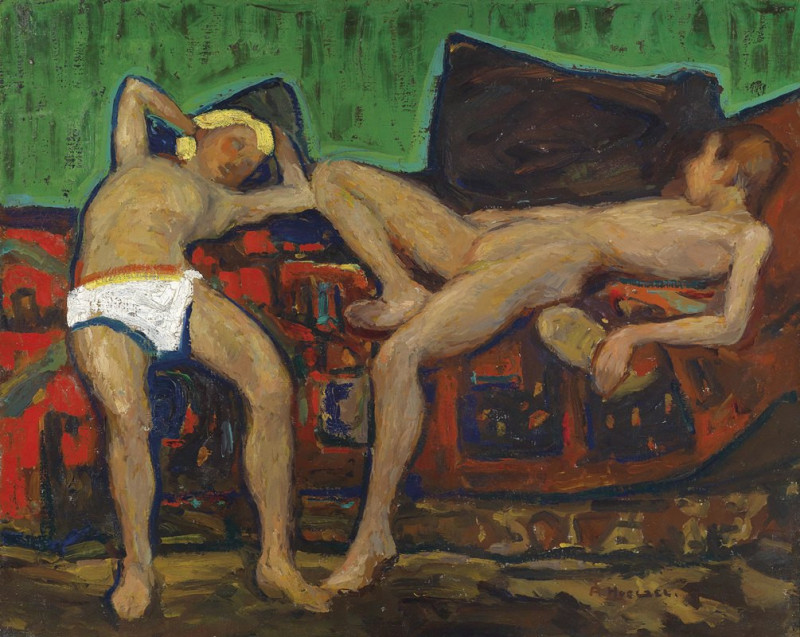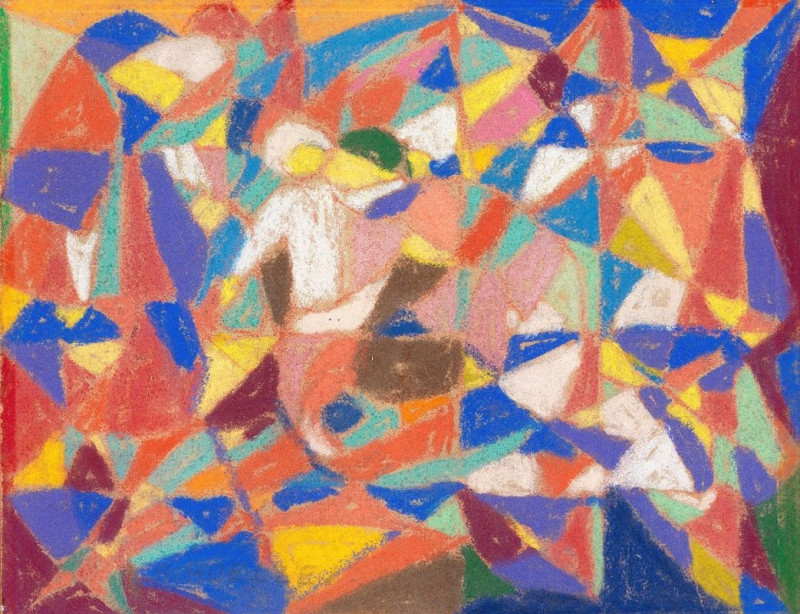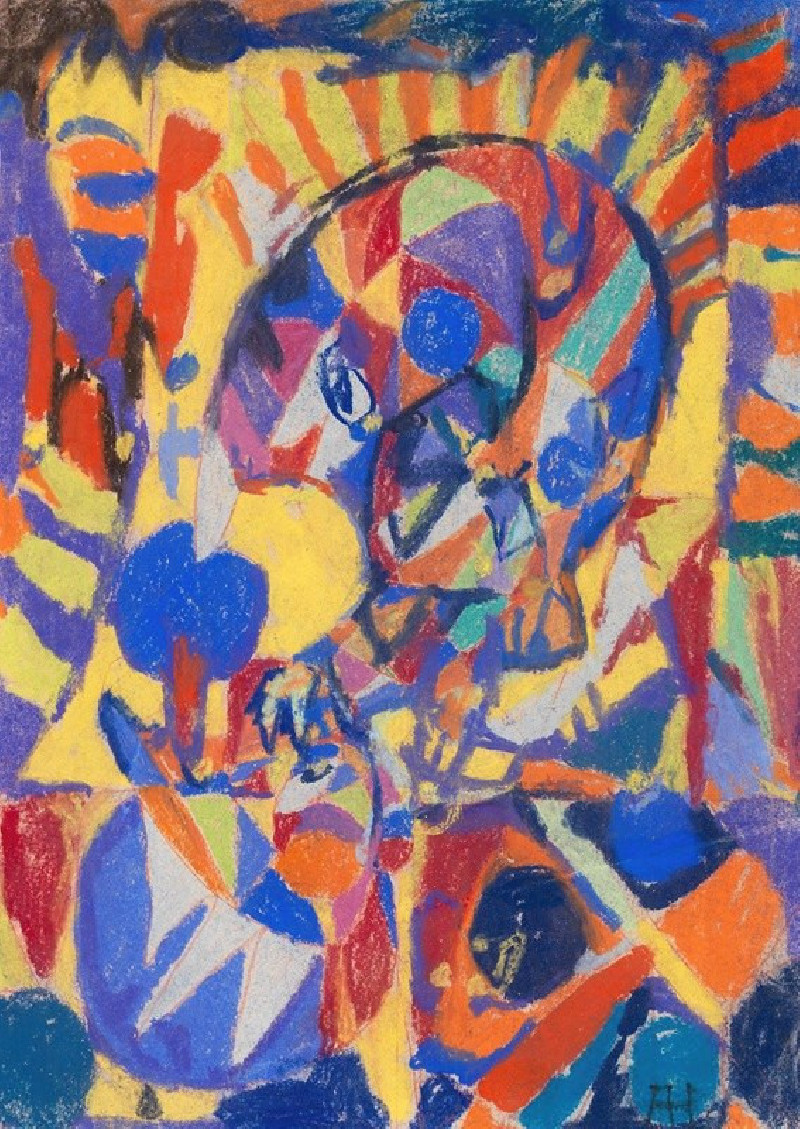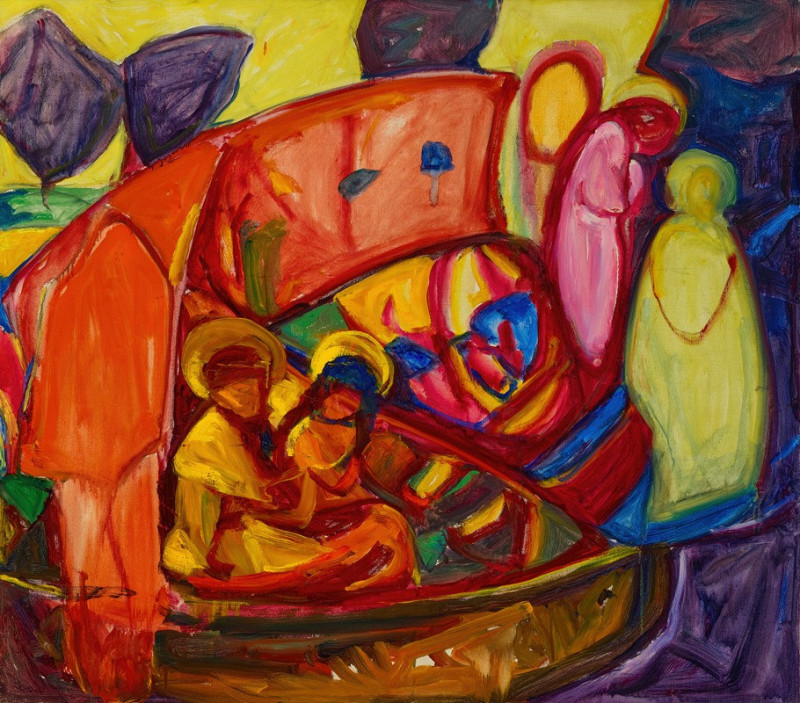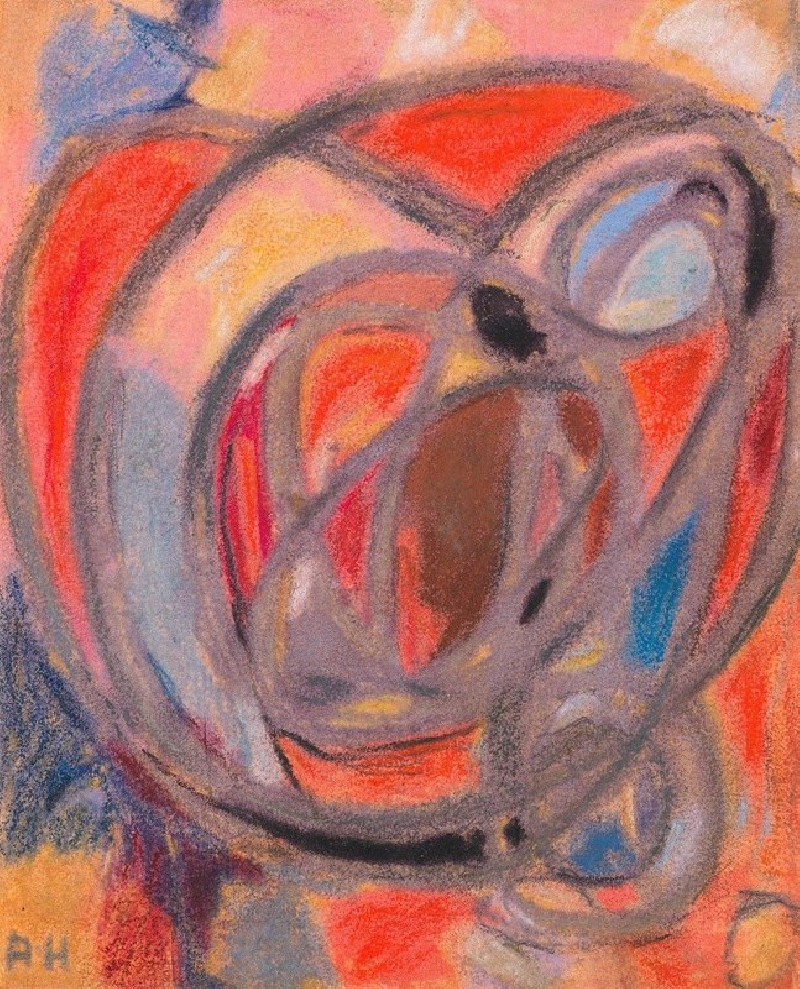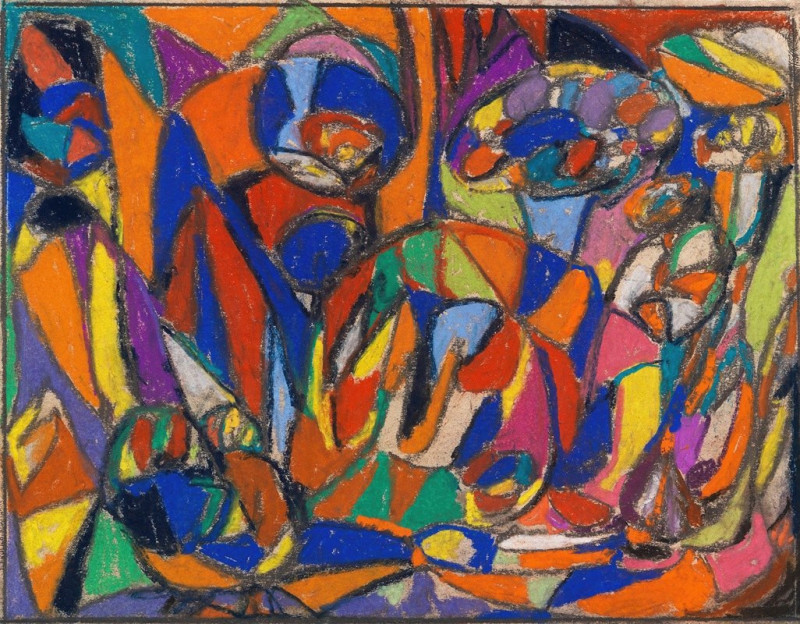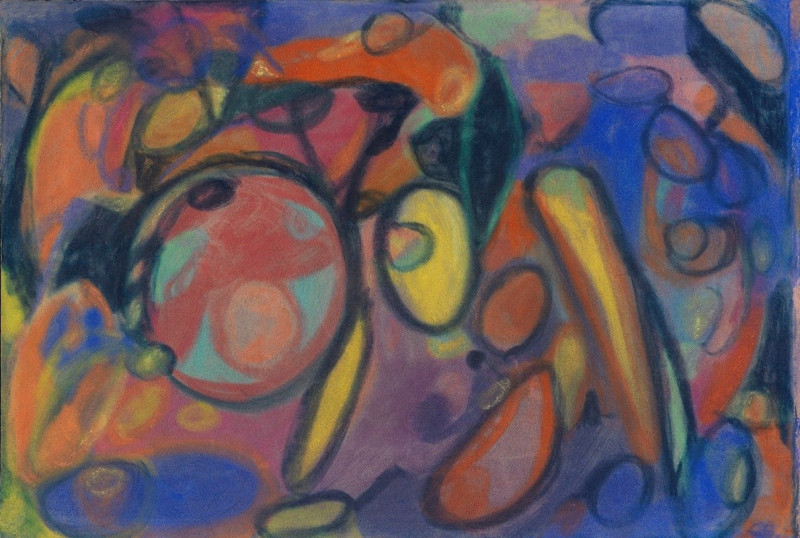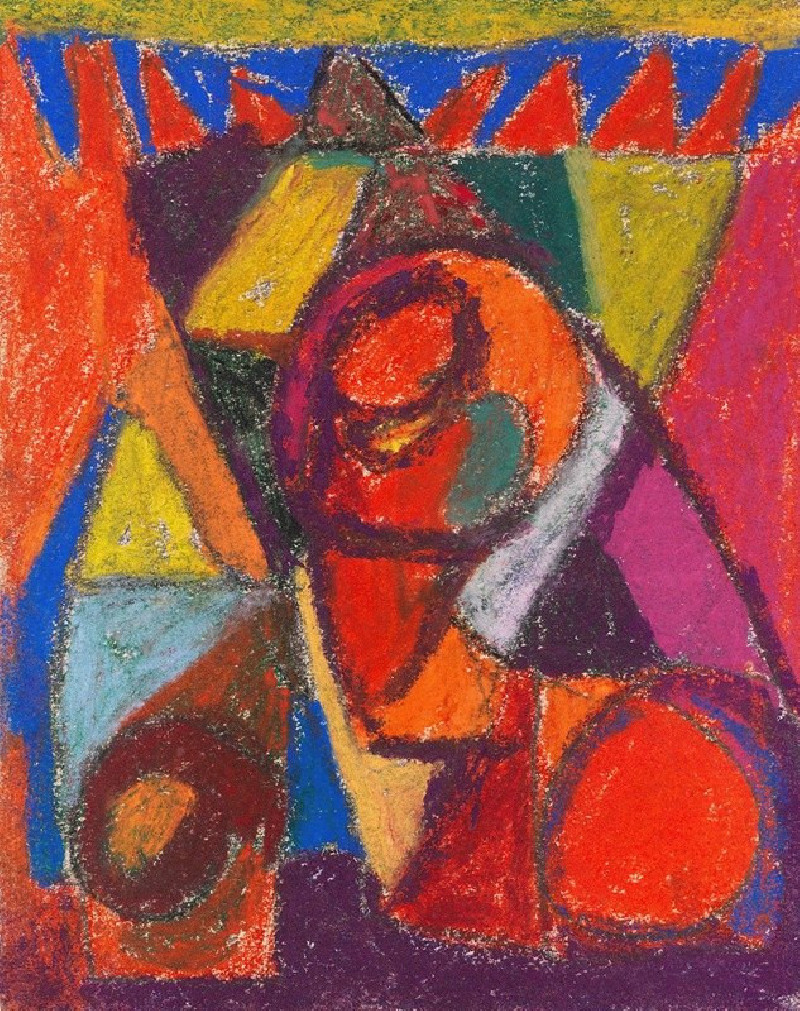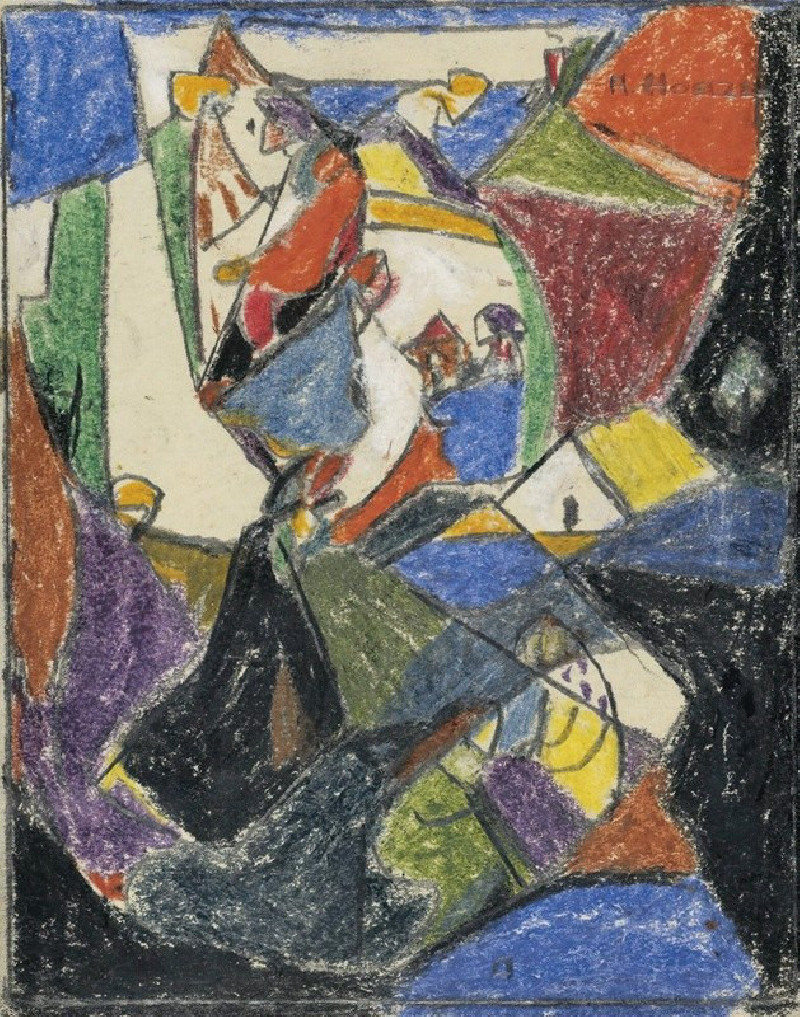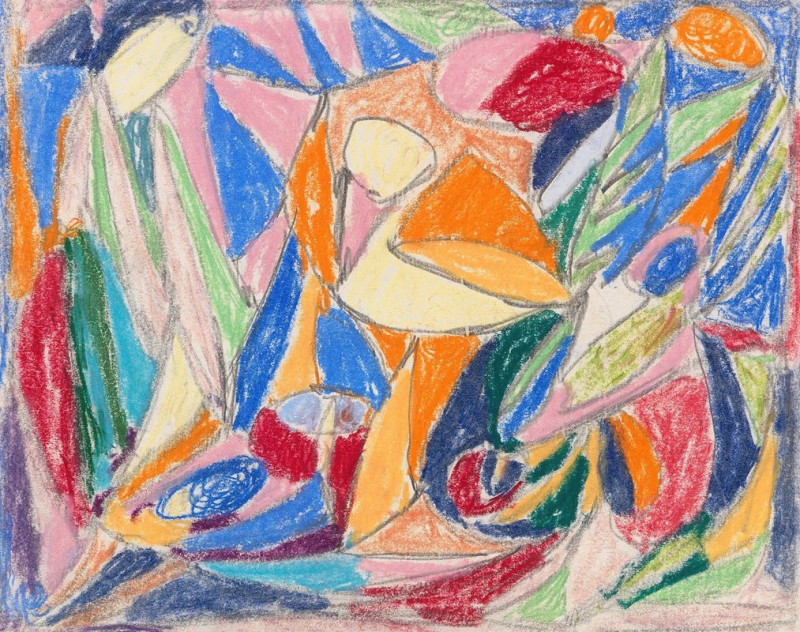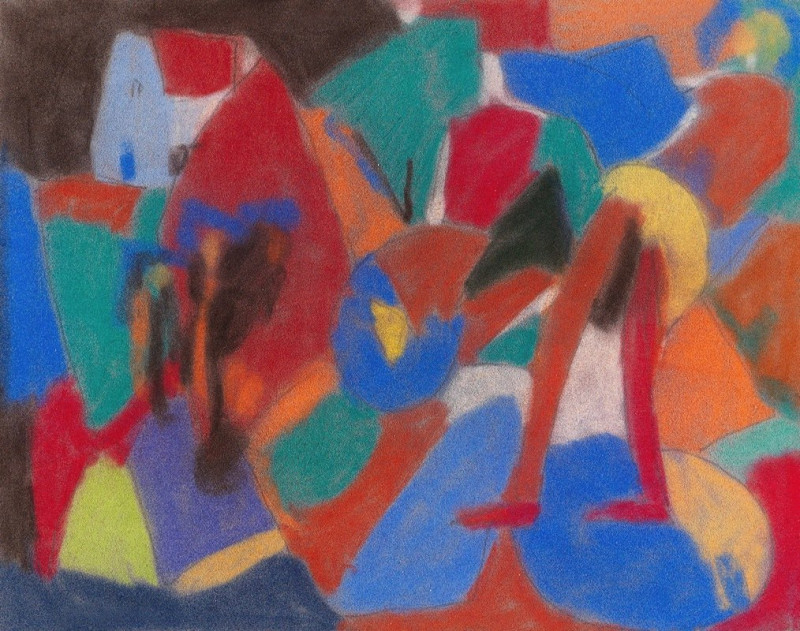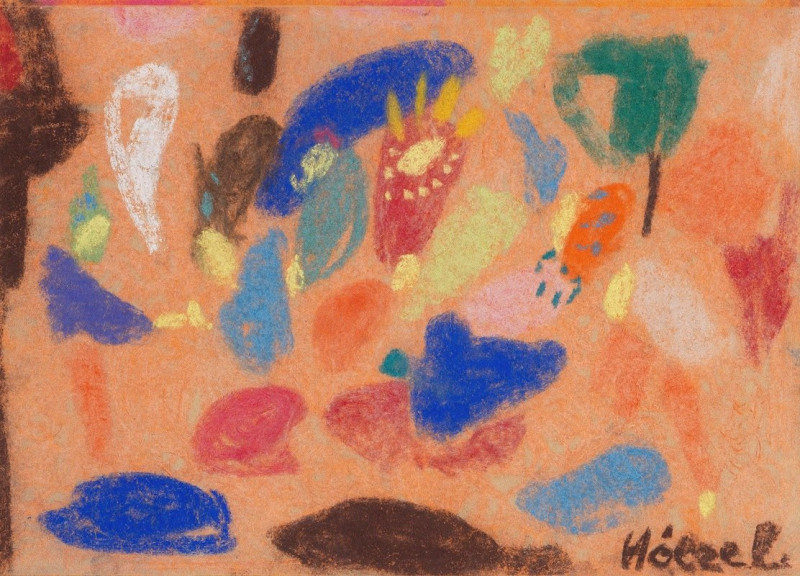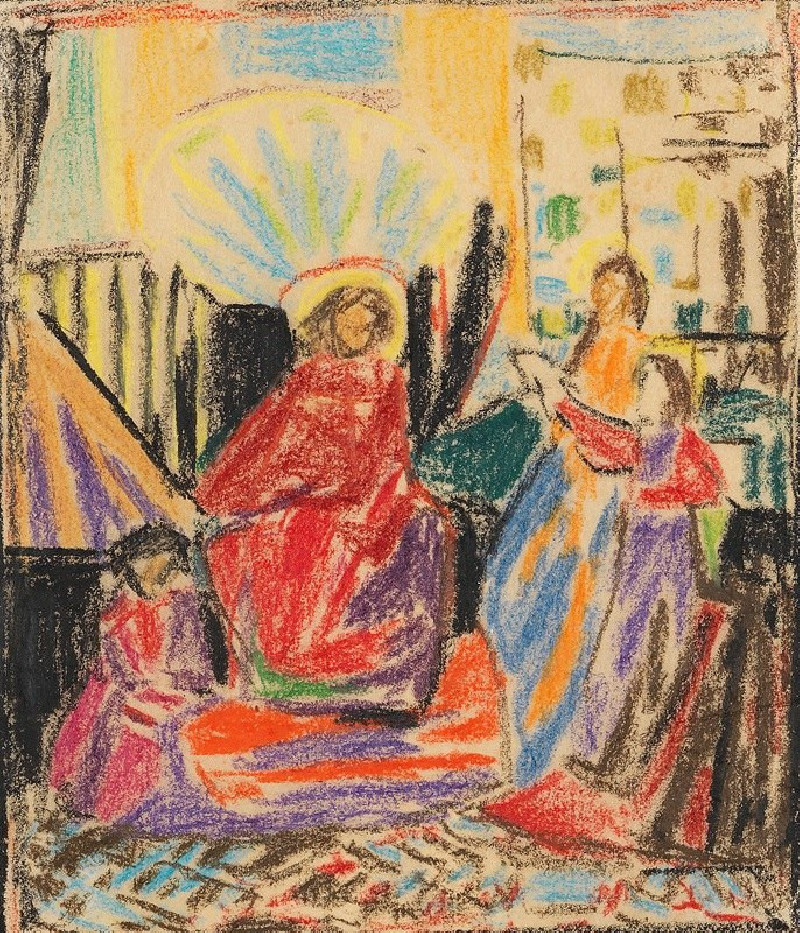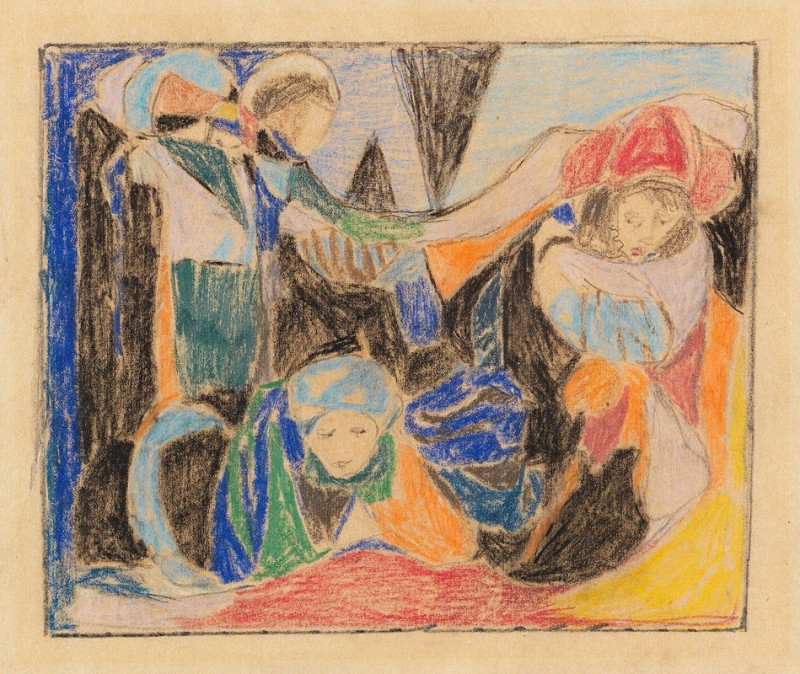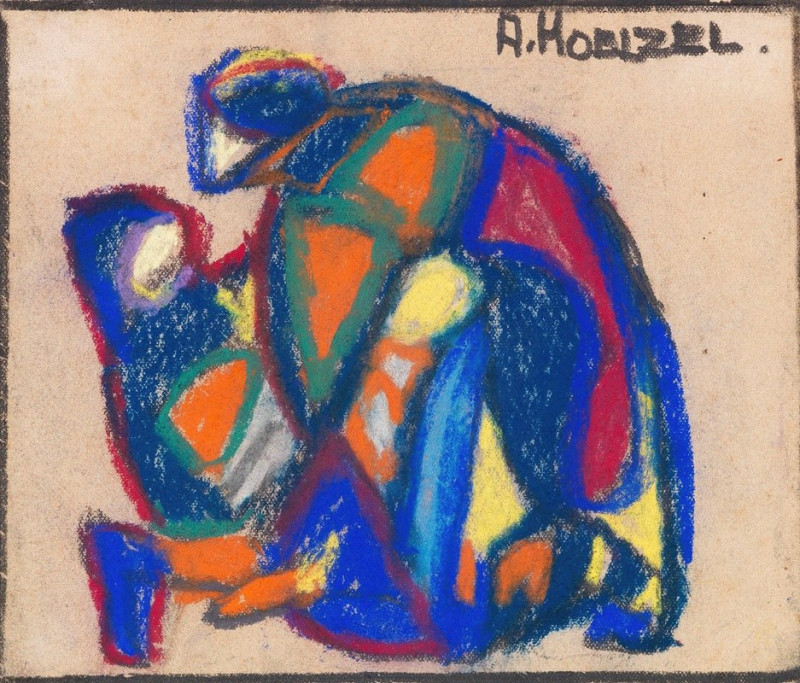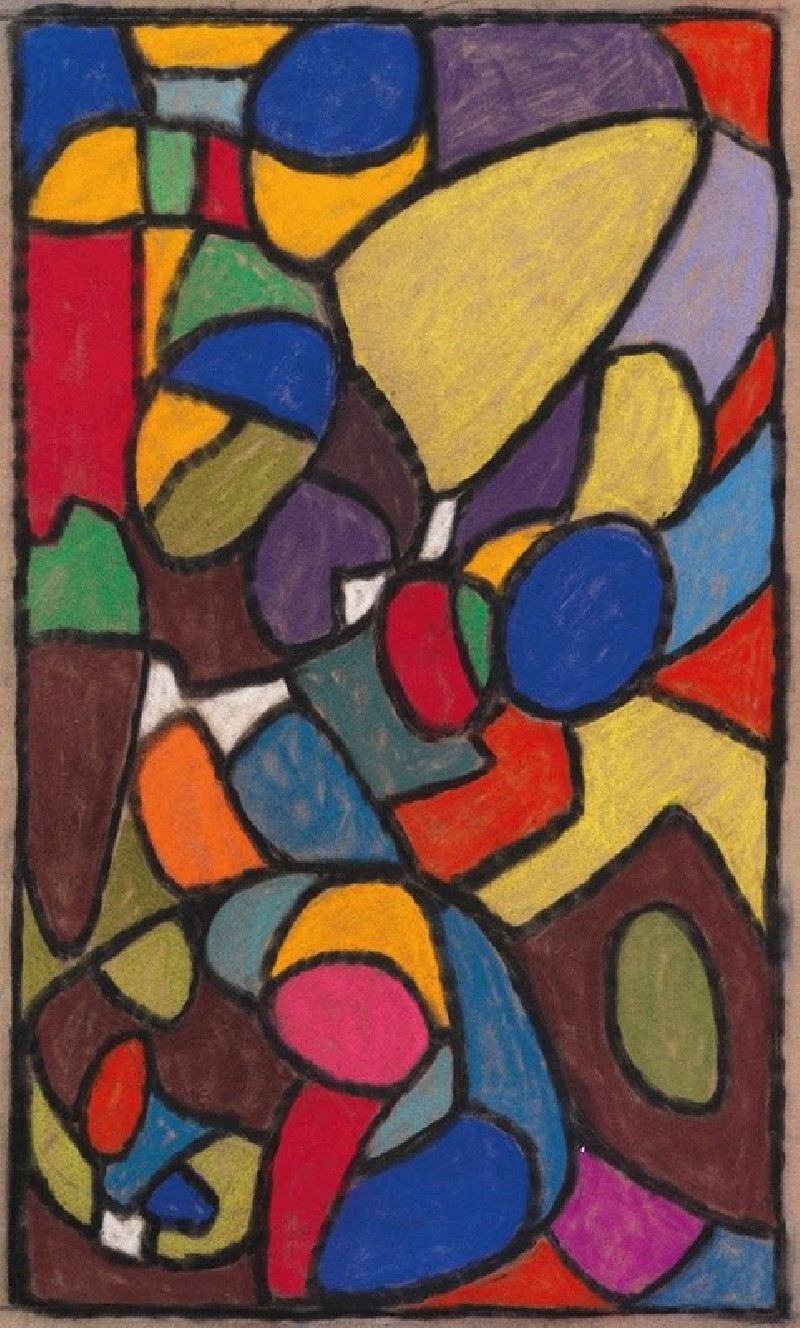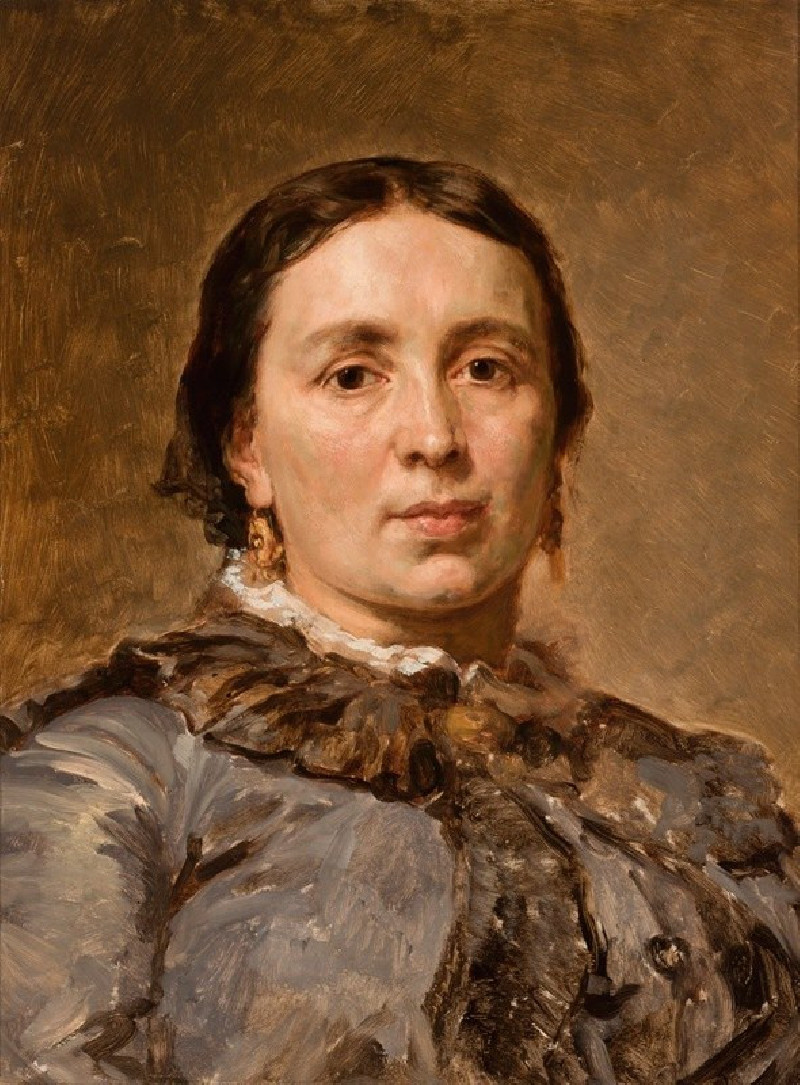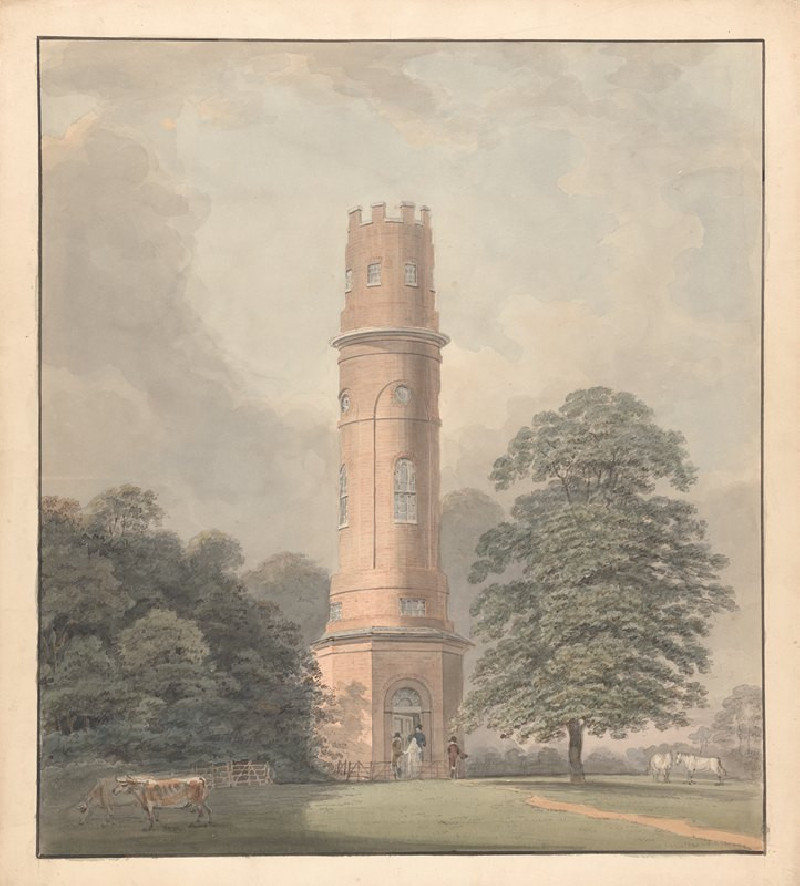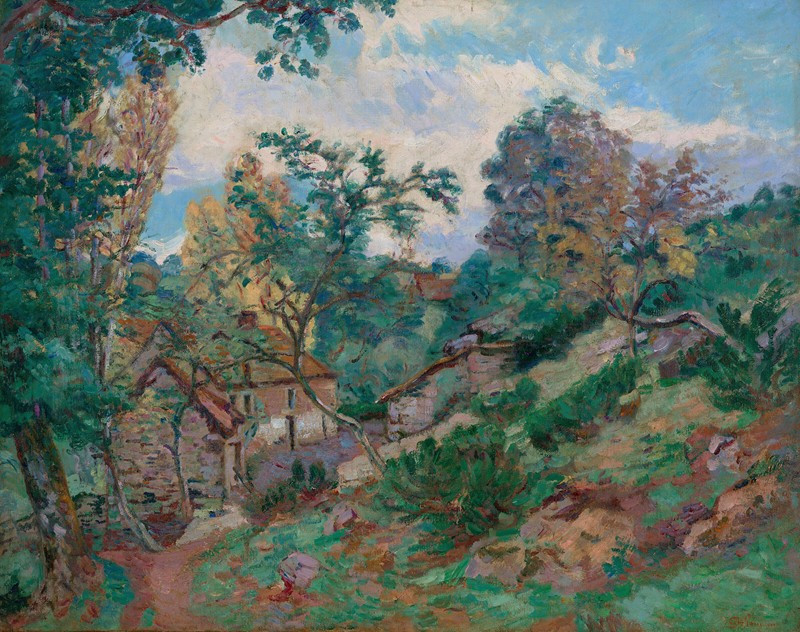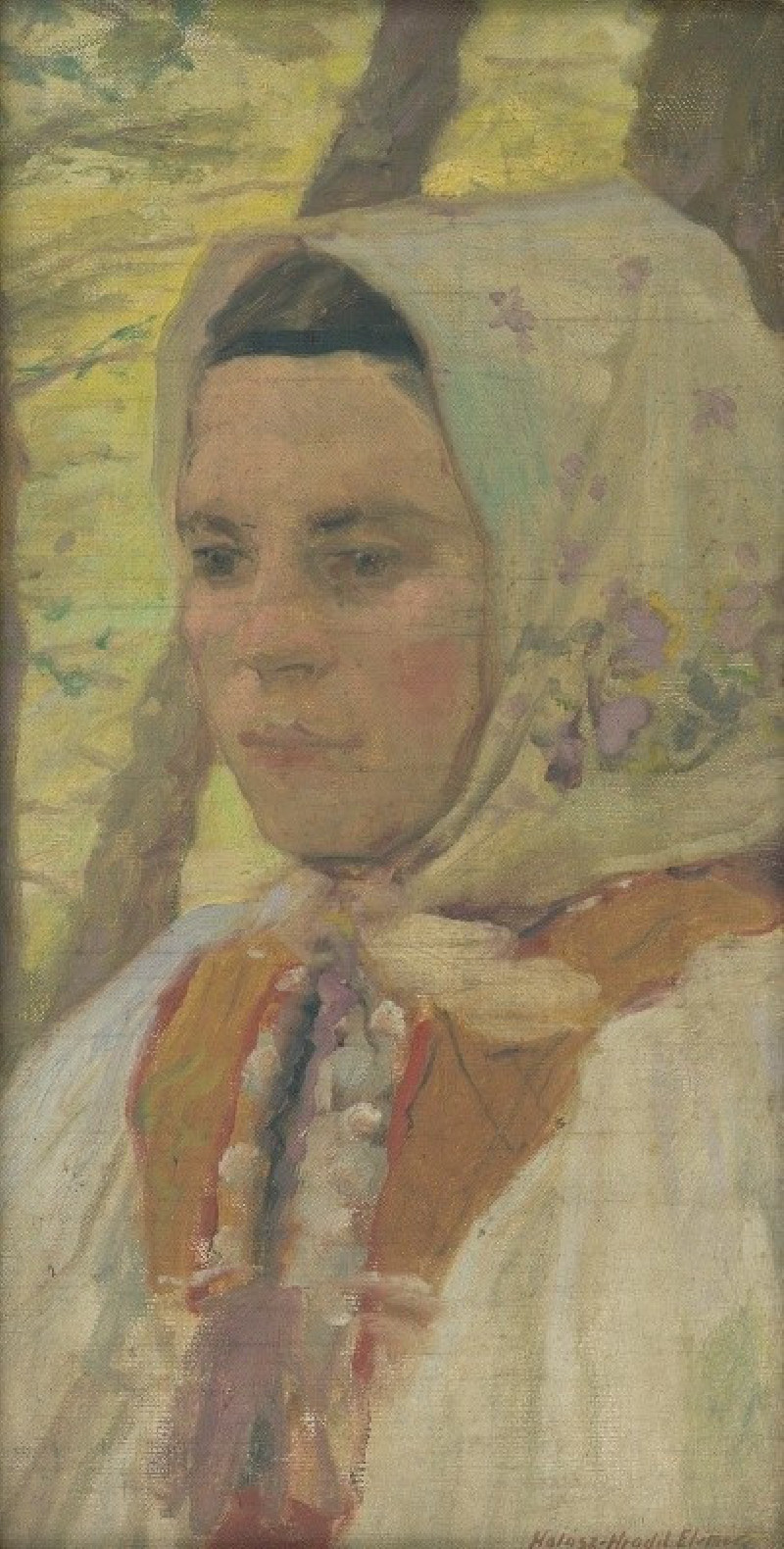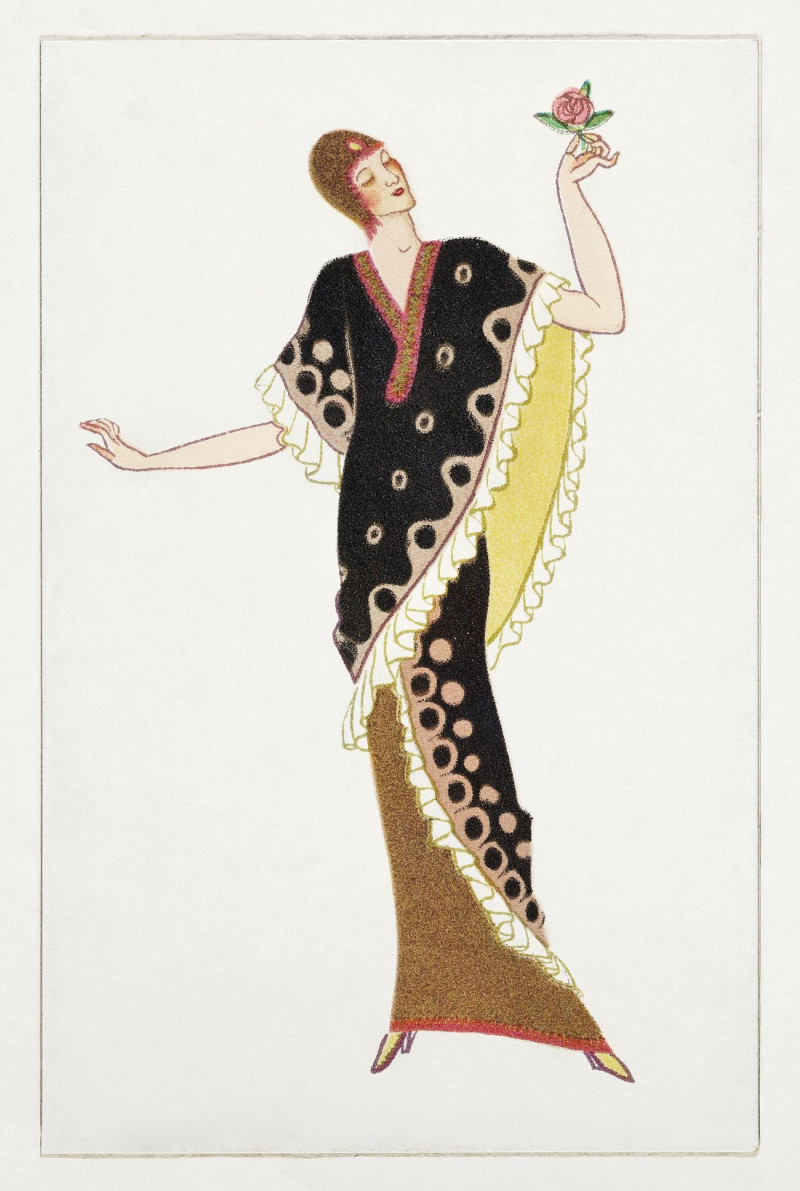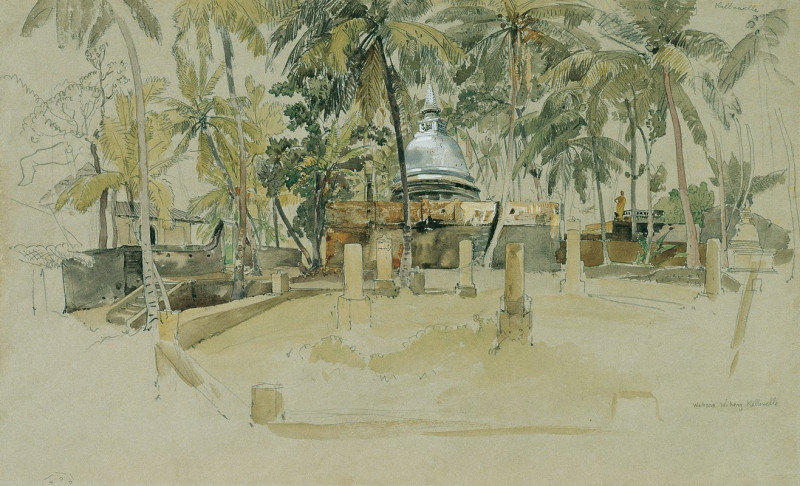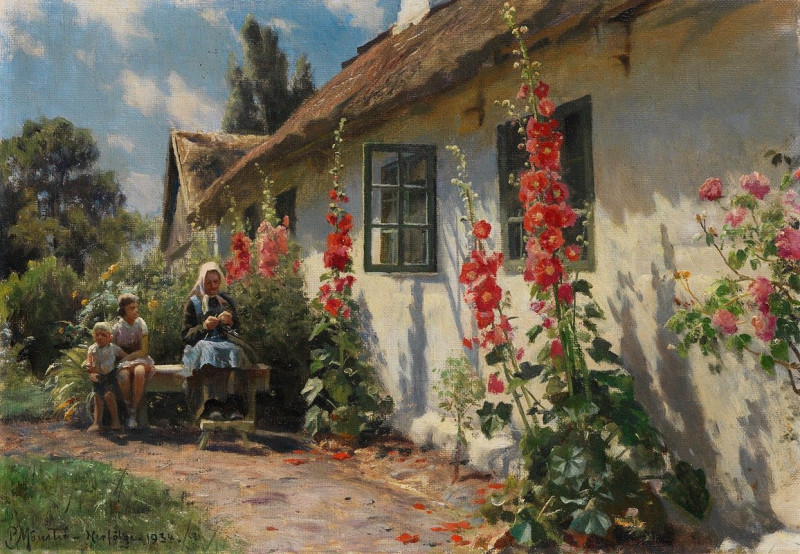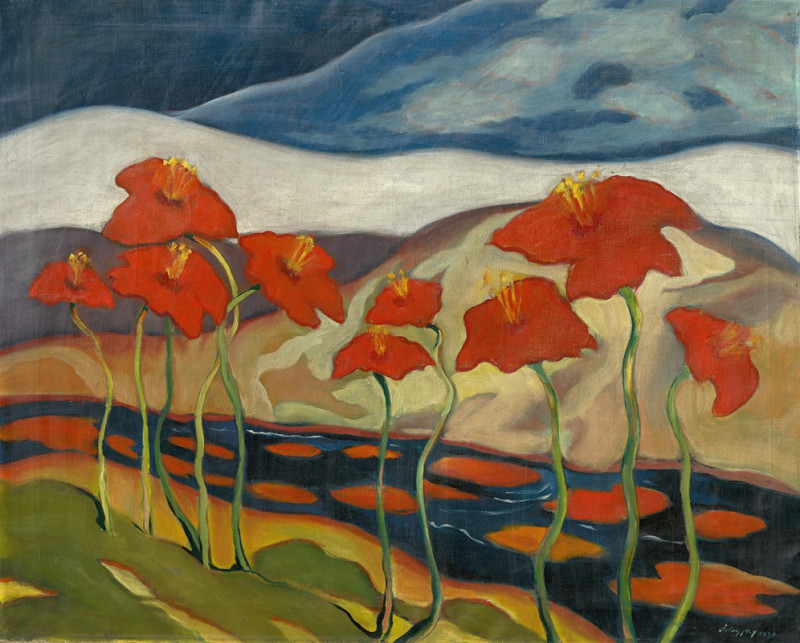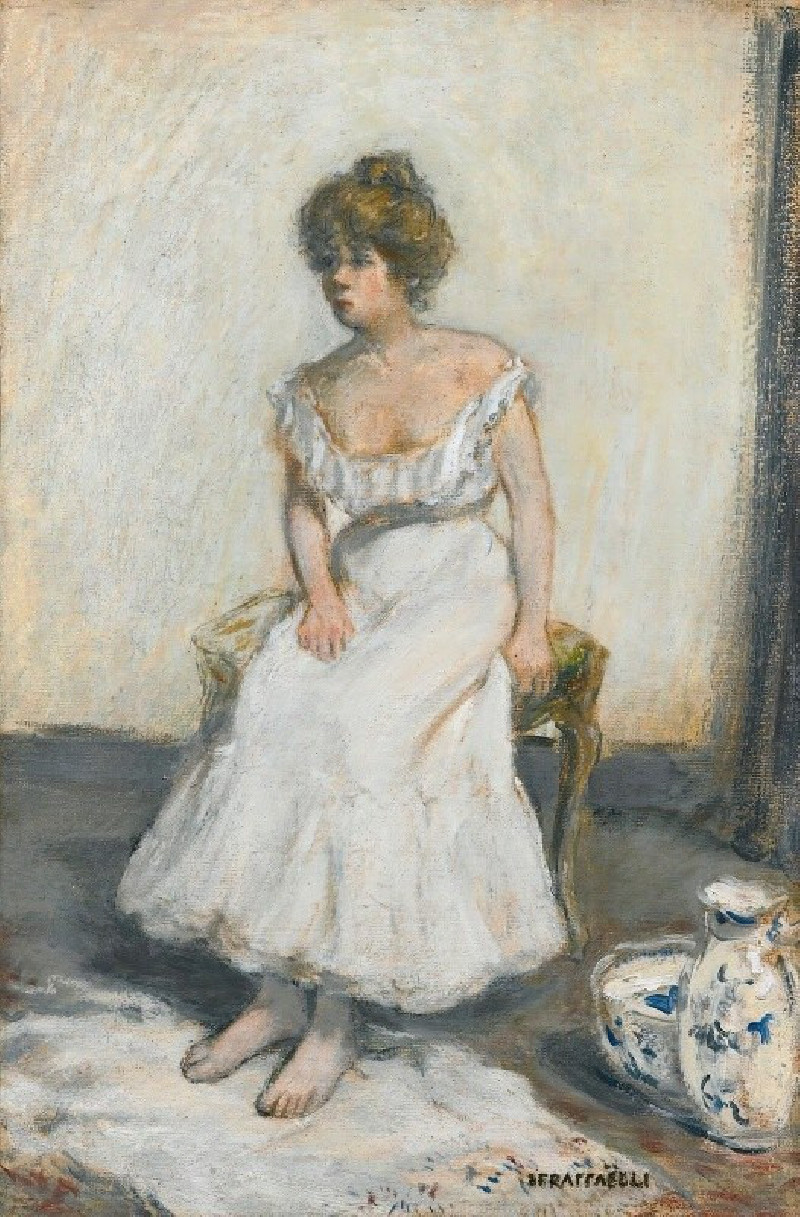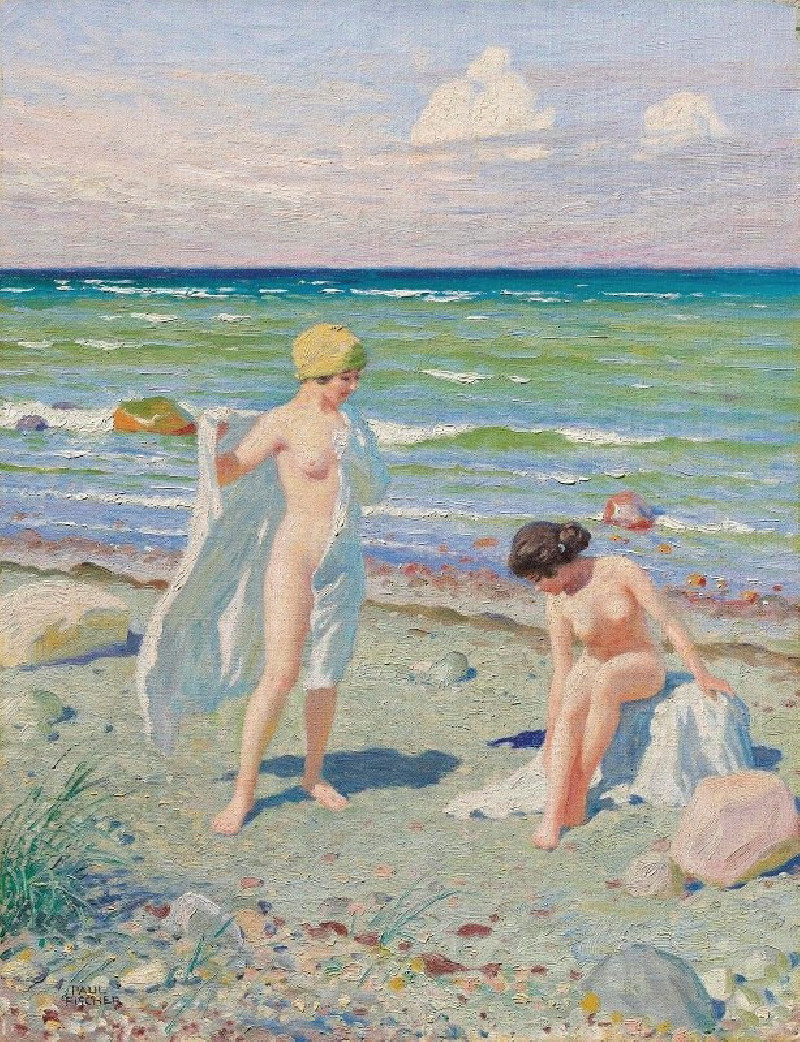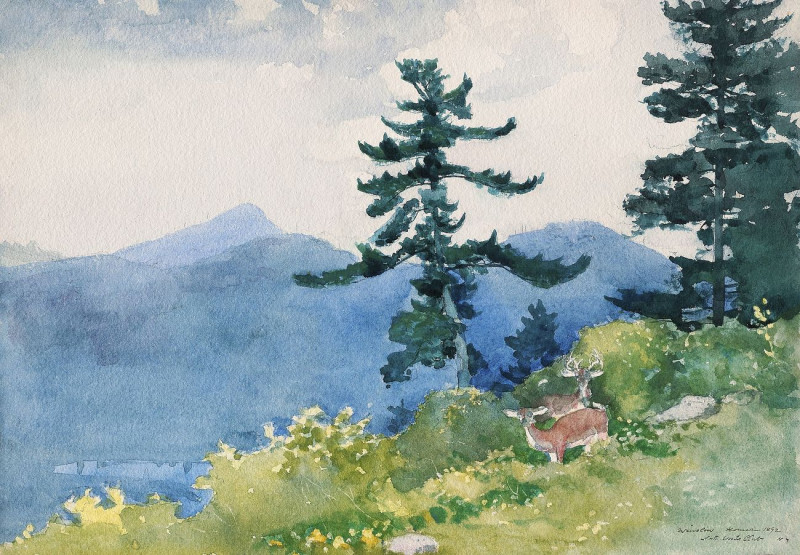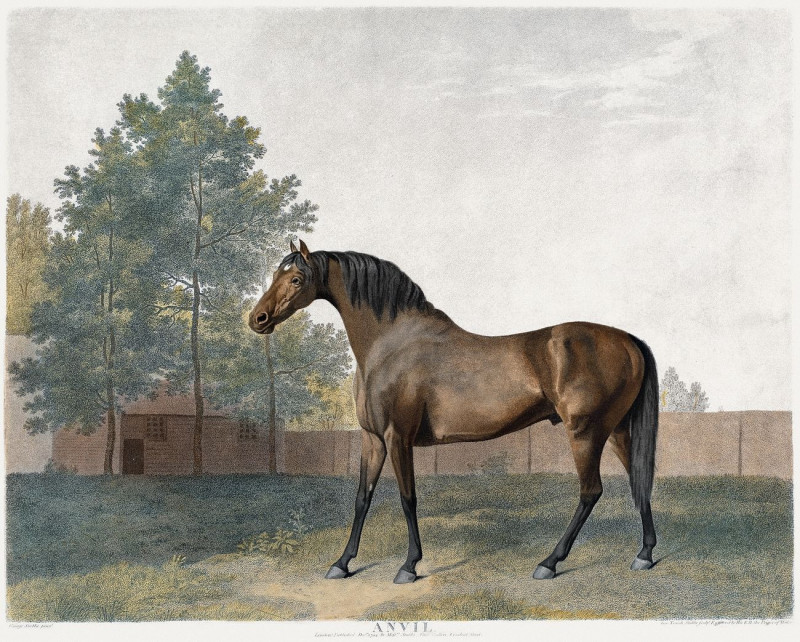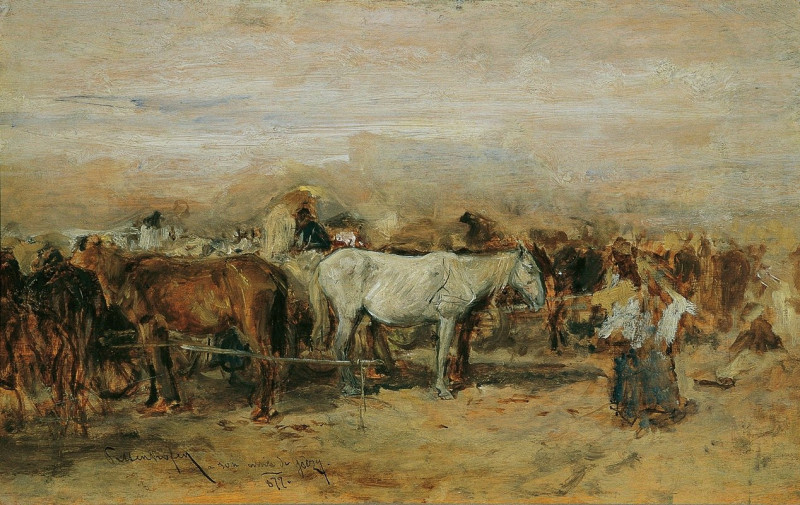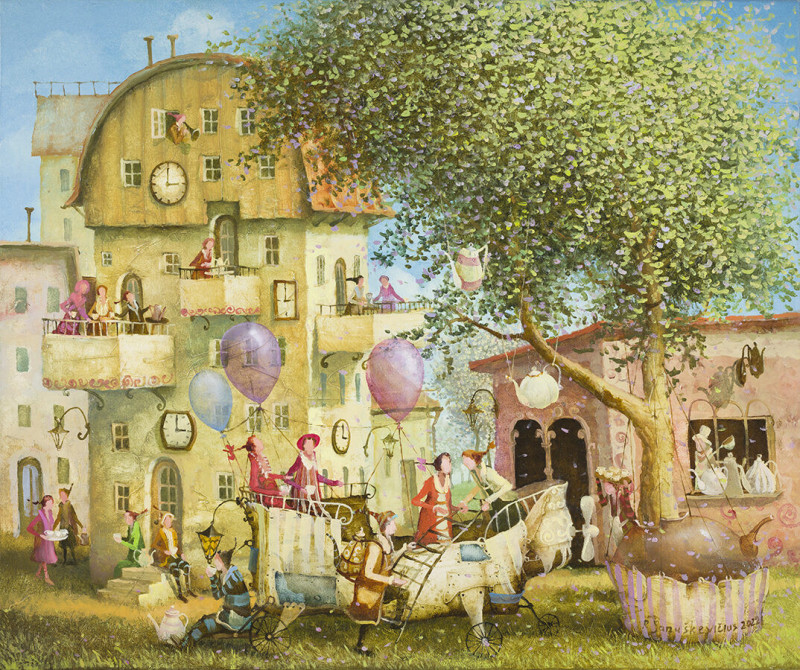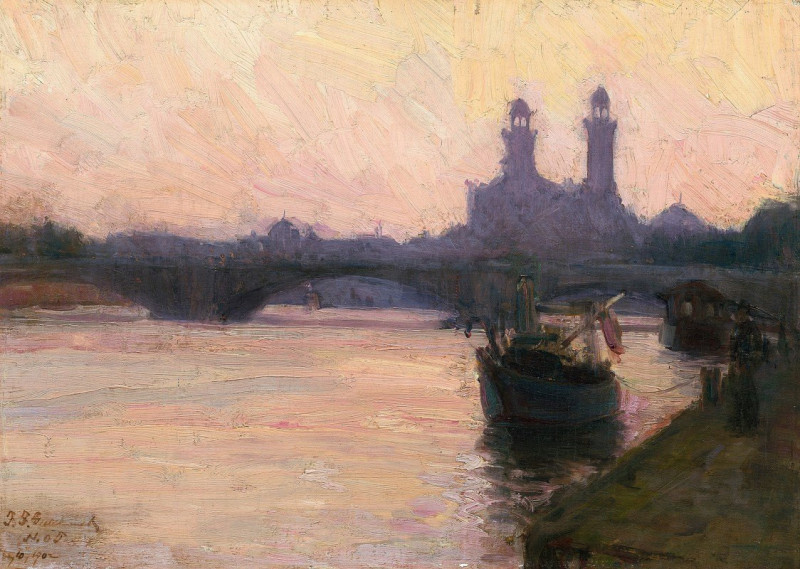Engel auf rotem Fond (1925)
Technique: Giclée quality print
Recommended by our customers
More about this artwork
Engel auf rotem Fond, painted by Adolf Hölzel in 1925, is a captivating abstract piece that draws viewers into a rich tapestry of colors and shapes. At its core, this painting features enigmatic forms and figures that appear to float against a deep red background. The vibrant hues of blue, yellow, and green intersect and overlap, creating a dynamic sense of movement and depth.Hölzel, a pioneer in abstract art, uses geometric abstraction to engage with themes that are both mystical and profound. The title of the painting, which translates to "Angel on a Red Background," suggests a celestial presence, depicted not through traditional imagery but through abstract expression. The central figure, which one might interpret as the 'angel,' is rendered in contrasting blues and oranges, imbuing it with an otherworldly quality.This artwork invites viewers to explore their interpretations and to find personal meaning in the juxtaposition of colors and forms. Engel auf rotem Fond stands as a testament to Hölzel’s innovative spirit and his contributions to the evolution of modern art.


